What I've finished in the last month or so:

I've enjoyed digging deeper into theology with this German martyr, saint, prophet, and servant. Bonhoeffer's ethics would make many modern and conservative thinker uneasy simply because ethics are based in reality/experience. Therefore, we must struggle to know what to do according to our experience founded in Christ. I appreciate his unswerving allegiance to God and his drive to find concrete ways of acting in our secular world.

Hirsch and Frost are two creative thinkers who are fruitfully engaging the church and the changes in our culture. Their first book written together, The Shaping of Things to Come really served to shape the questions and direction my education in seminary would take. But I found this book rather simple and boring, I didn't read the last few chapters. I felt like they strained to connect their points with real examples. I'm sure this book will serve others in their journey, but it wasn't helpful for me.

Here is a wonderfully researched and edited volume coming out of Duke Divinity School. Unlike so many books on evangelism that deal with 10 steps or ways to intrude on the conversation, Chilcote and Warner have meticulously placed evangelism within the broader missio Dei. This work contains articles from Bosch, Newbigin, Hauerwas, Guder, Brueggemann, Ron Sider, Dana Robert, and many others dealing with several facets of this important theological issue.

Over Christmas break, to lighten things up, I picked up this little gem. Lest Innocent Blood tells a beautiful holocaust story (ironic?) of a little pacifist village in Southern France during German occupation led by protestant pastor, Andre Trocme that saved thousands of lives. I found myself fascinated by Andre, especially passionate marraige to Magda his agnostic wife. Everyone should read this book who has an inkling of interests in WWII and the Holocaust.
Recently read books:

Johnson's solution to our economic plight as Christians is to not seek a single perfect system, but to remain travelers or pilgrims in this world. With that in mind she takes the history of volunteer beggars through the development of economic thought and change from the 15th Century to modern times. This history is revealing to why we treat beggars the way we do and how economic thought and culture affects the church.

Cavanaugh is quickly becoming one of favorite author/theologians on matters concerning economics, faith, and the state. In this short volume he takes the readers through fallacies that exist within a consumer culture, like the idea of freedom in trade or detachment. Throughout the book Cavanaugh drops short hints or helpful suggestions for action for Christians in a consumer culture other than to feel bad for being a consumer.
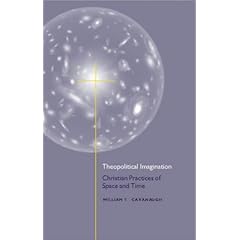
I was impressed enough with the previous title, that I thought I'd try another book by Cavanaugh, and I wasn't disappointed. In this work, the author tackles the issue of political philosophy and how the state's narrative runs against the narrative of the gospel. Again, this book focuses on the power and fallacies of globalization. Cavanaugh focuses especially on the Eucharist and the church as means for working within these issues.

I didn't expect to like this book as much as I did since Van Til seems to believe that beliefs predicate actions. What I did find helpful in this look is how the capital market according to Adam Smith does not leave room or make the market accessible for some, the truly poor. His final few chapters are an interesting look at how equality without flat redistribution of wealth can occur (not meaning no redistribution).
Here's some books I'm in the middle of:
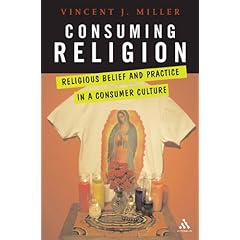
This rather dense look at how consumer culture affects faith by Georgetown theologian Vincent J. Miller is becoming one of my favorite reads. I thought I'd be able to pass through this book quicker, but I've found myself reading and rereading parts to get the concepts in my head. This book has also helped me understand a few other books I'm reading on postmodern philosophy and our culture.
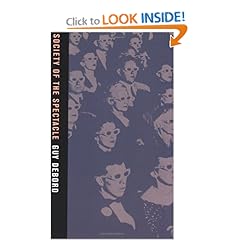
Guy Debord is an interesting philosopher who takes his ques from Marx as well as Henri Lefebvre. I've posted a quote from Debord a few days ago. This book is an interesting look at how our culture affects us and how we as humans have moved from as "being to having," to now "having to appearing." Thus, our needs and reality become false based upon what we see, the spectacle produced by media and film.
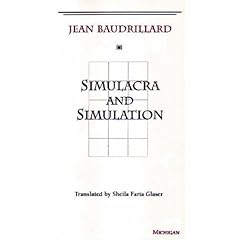
Where so many people thought the Matrix movies were based somehow strangely on the gospels, the real inspiration comes from this french postmodern philosopher. Basically we live in a false reality, created by false desires because all that matters in assuaging the consumers desire for more.
And finally here's some works I'm either referencing, beginning, or hope to pick up in the near future:

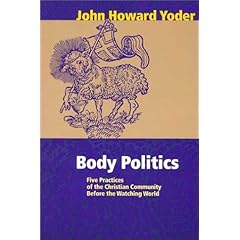


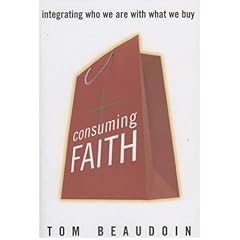










No comments:
Post a Comment